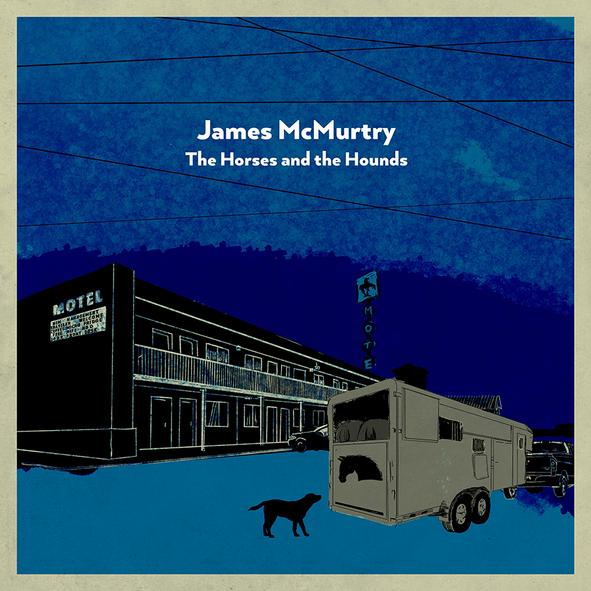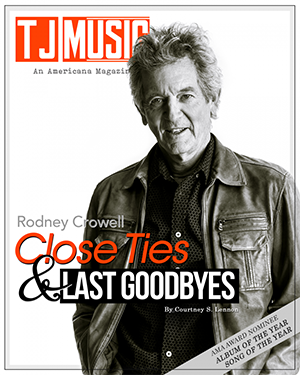
By Brian Rock
James McMurtry unleashes his literary prowess on his tenth studio album, The Horses and the Hounds. The ten musical novellas included on this album find McMurtry weaving tales of jealousy, faithlessness, murder and the occasional, unfortunate road trip. With his dustbowl voice and sepia hued lyrics, McMurtry explores the struggles of everyday men and woman in unflinching, Hemingway-esque fashion.
“Canola Fields,” leads off the story stampede with a tale of a man nursing a thirty-year crush for a woman. Singing, “There’s not much moving on the romance radar, not that I’m craving it all that much. But I still need to feel every once and a while the warmth of a smile and a touch,” he conveys the loneliness of a man who’s yearned for years for his unrequited love.” Circumstances finally afford him a brief moment to consummate his affections, only to see her slip through his fingers again. Too late, he discovers that the pain of loving and losing is worse than the pain of never having loved at all. In desperation he cries out, “Take my hand Marie. Take a death grip on some part of me. Keep me from drifting far out to sea, or I’ll be lost out there.” McMurtry’s character is trapped in a loveless purgatory with nothing but brief memories and glimpses of what might have been to comfort him – and he makes you feel that pain as well.
Like Kris Kristofferson and Corb Lund, McMurtry is a master musical storyteller. Yes, he tackles big issues like love and yearning and fear and failure. But those issues are brought into focus with descriptions of rusted light posts, ’69 Volkswagen Beatles, the smell of ragweed in the rain, and a thousand other cinematic details that make his stories so tangible. To this film reel of lyrics, he adds more musical texture than on his previous albums. Hammond organ, violin, accordion, and Rock and Roll guitar licks all add depth and nuance as supporting characters in his stories.
“Jackie,” uses soft violin strains to tell the story of a truck driving woman who struggles with the meaning of “faithful.” ‘Decent Man,” raises more questions than answers about a man who shoots his best friend. From his prison cell he moans, “When you’re shooting at a coffee can, a thirty-eight don’t kick that bad. But it kicks right through my bones every second of every day; clacking by like cobble stones under broken wheels.” You sense his regret and you feel his sorrow, but you never learn his reasons. McMurtry uses subdued accordion chords to celebrate cowboys on the border. Drums and guitar move to the fore on the bluesy call to face your fears, “The Horses and the Hounds.” “Ft. Walton Wake-Up Call,” recounts a series of unfortunate events on the way from hotel to home. “What’s the Matter,” finds McMurtry in full rock and roll mode as he sings the middle age relationship blues. He returns to form on the album’s coda, “Blackberry Winter,” a song about a couple breaking up after so many long years together.
Poignant and poetic, McMurtry sings the tales of life’s losers. The lonely, the luckless, the languishing all find their voice here. They may not be happy stories, but they are stories well told.
jamesmcmurtry.com | fb | buy
Brian Rock
Latest posts by Brian Rock (see all)
- Nicolette & The Nobodies The Long Way - April 15, 2024
- Driftwood’s December Last Call - March 22, 2024
- Ted Russell Kamp’s California Son - March 15, 2024


